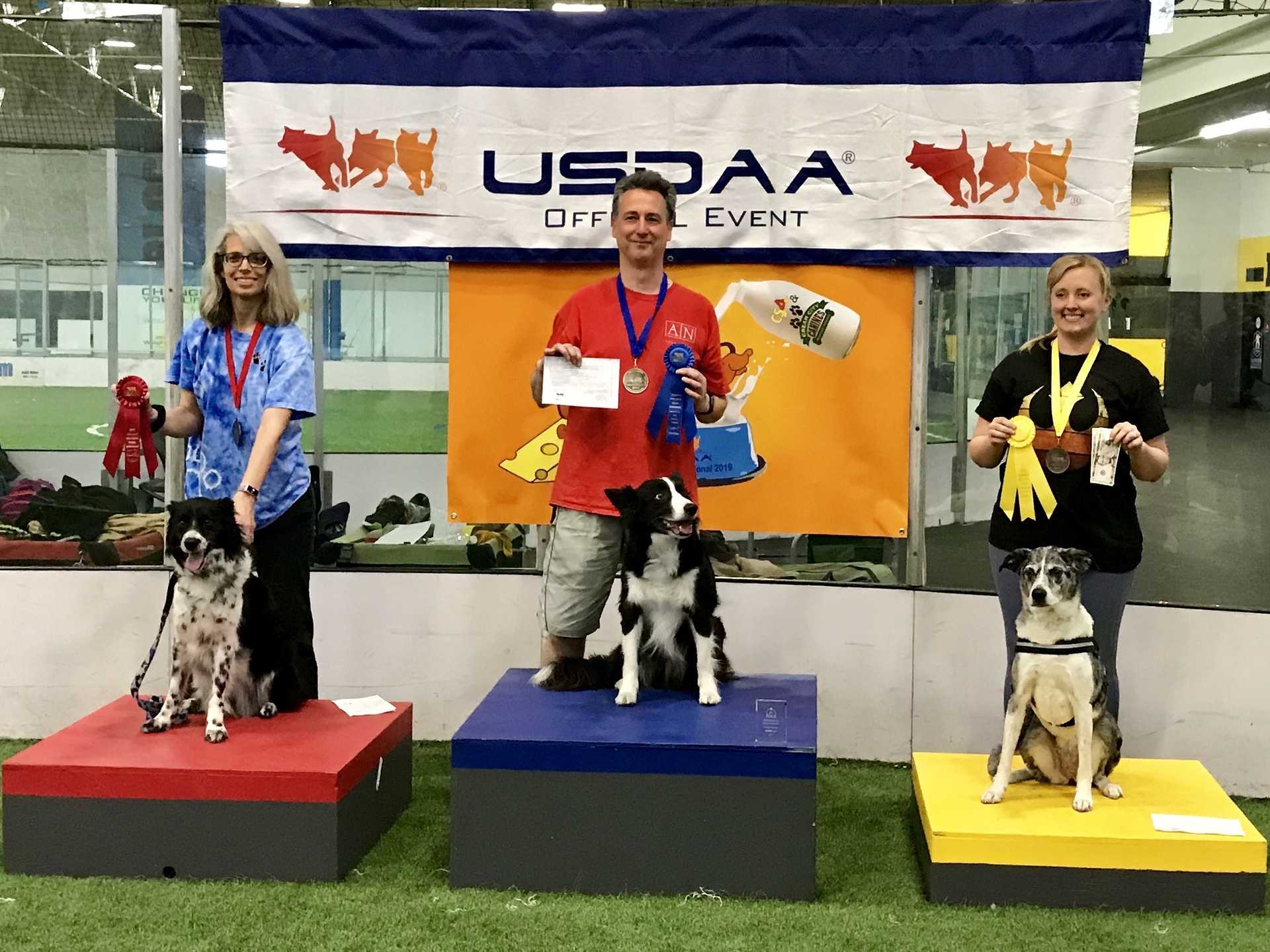Mr. Peabody Has an Acute Glaucoma Attack
10 Feb 2005
This Monday morning Mr. Peabody was squinting in his visual eye. Nancy knew immediately what a dangerous situation that was - squinting could only mean that the pressure in his eye was making him uncomfortable. If it was making him uncomfortable his optic nerve could be getting damaged by the increased interocular pressure (IOC). She immediately took him to Eye Care for Animals in Chicago. We had just been there the preceding Friday and his pressure was tested at 21 mm Hg - his eye was responding to the Xalatan and Dr. Paul A. Gerding changed him to twice a day to further reduce the his IOC. Things were looking good with the prospect of intervening surgically a possibly far future event.
Dr. Agapito took Mr. Peabody's IOC and found it was at 50 mm Hg; more than double the eye's normal high pressure reading. Human Glaucoma patients often refer to this pressure as feeling like a continuous migraine headache.Dr. Agapito immediately put Mr. Peabody on additional meds including oral glycerine. During the next few hours his pressure dropped down to 27 mm Hg and it looked like his eye pressure might recover to normal. Unfortunately within a few hours it began to climb again. After phone discussions with Dr. Gerding it was decided to perform a centesis (use a syringe to manually remove fluid from the eye) to reduce the pressure. This procedure reduced Mr. Peabody’s IOC to 5mm.
It was at this point that all of our long term options for managing Mr. Peabody’s eye pressure disappeared. The least traumatic approach was to perform an immediate laser surgery to “damage” the ciliary body that produces the fluid in the eye. Unfortunately, it was so late in the day we had to wait until the next morning. We took home all the meds they prescribed for treating him overnight and Nancy spent a sleepless night worrying about whether Mr. Peabody’s eye pressure would spike overnight to a damaging level.
The next morning we went to the Wheeling office where we met with Dr. Sisler. At 7:30 AM Mr. Peabody’s pressure was already up to 40 mm Hg. After discussing the procedure Dr. Sisler said what we hoped we would never hear. That the risk of blindness due to not doing the procedure was obviously higher than not performing the surgery - we had no choice. It is one thing to know the risks of surgery intellectually - but to leave our beloved Mr. Peabody there and know that within an hour or so he might be irreversibly blind was chilling. But it was the best decision we could make.
We got the call from Dr. Agapito after the surgery and she said it went beautifully. Immediately after surgery his IOC was at 70 mm Hg but they performed another centesis and dropped him back down to 5 mm Hg. We left him there to be monitored for the rest of the day. We wanted to take him home but it was more important to ensure if he had a problem it could be immediately addressed.
We were going to take Mr. P to a 24 hour emergency vet for overnight IOC monitoring. But Dr. Agapito convinced us that it would be best for him to go home and be with his family where he could rest. They put a few stitches in his eyelid to keep the eye partially closed to help reduce the possibility of cornea damage/drying. His third eyelid was quite inflamed and he had the remnants of the surgical eye gel around both eyes. So when we saw him he looked like a sad rheumy eyed old dog. He just collapsed on Nancy’s lap. He seemed to detect some movement and his IOC was still at 5 mm Hg - the best we could hope for.
We took him home and he was able to get up the stairs with a little help. He seemed to find his way around; but with some difficulty and a little disorientation (he was also still on a lot of meds too). We had to put an Elizabethan collar on him to keep him from scratching at his stitches - he really dislikes those collars too. But he does love to use it as a weapon; especially if he can run it into your bare legs…
The next two days were a blur of going in for doctor’s visits and pressure checks each morning, worrying about whether he could/couldn’t see, and getting his stitches out. So the good news is that his eye pressure was 0 mm Hg on Thursday AM so the glaucoma appears to be under control - the doctors are quite happy about the success of the laser surgery. The inflammation in the eye appears to be going away and Dr. Gerding thinks that inflammation in the back of the eye might have been what triggered his acute glaucoma attack. Mr. Peabody seems to find his way around a little better each day - he took the stairs up and down (two flights) without any assistance today. So we are doctor appointment free until next Thursday, when he gets rechecked and his meds adjusted again.
So now we’ll just see how our little guy does. As Nancy put it to him: “Mr. Peabody it’s all up to you now”. Please keep Mr. Peabody in your good thoughts.
If you enjoyed this article won't you please:  Thanks!
Thanks!
